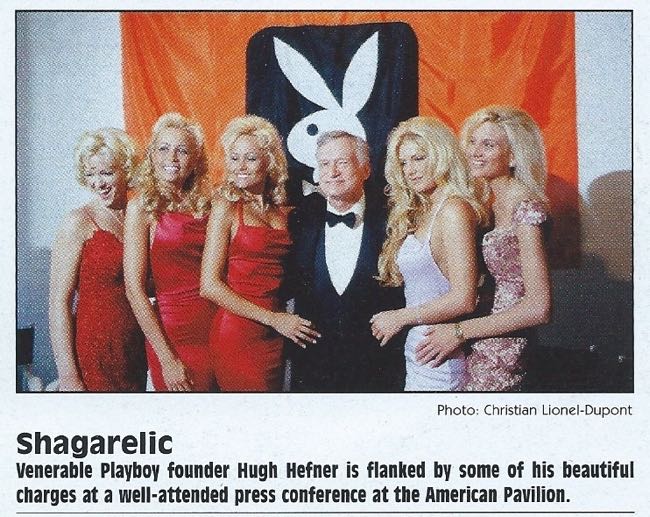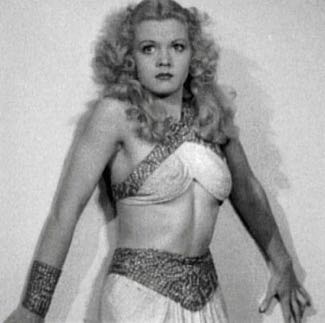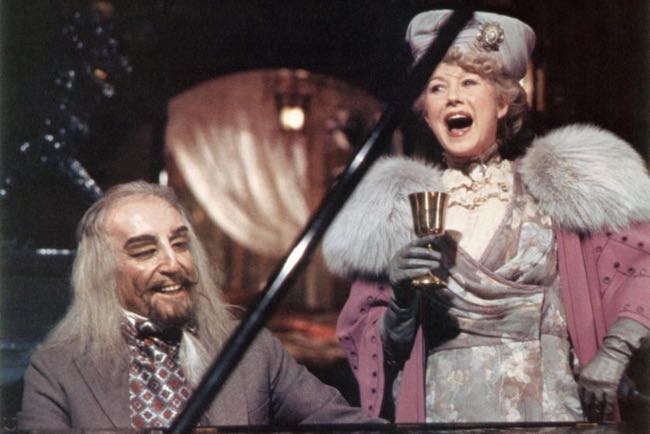By Ray Bennett
LONDON – At the Festival de Cannes in 1999, the Croisette was filled with promotions for “Austin Powers: The Spy Who Shagged Me” and the buzzword was “shagadelic”.
When The Hollywood Reporter Cannes Daily ran a picture of Hugh Hefner, who turns 90 today, with some young women on his arm, my kicker on the caption said, “Shagarelic” and rivals at Variety and Screen Daily declared it the headline of the festival.
It’s easy to make fun of the Playboy founder when he appears with a gaggle of siliconed beauties but when I interviewed Hefner at the Playboy Mansion in 1995, he showed his serious side.
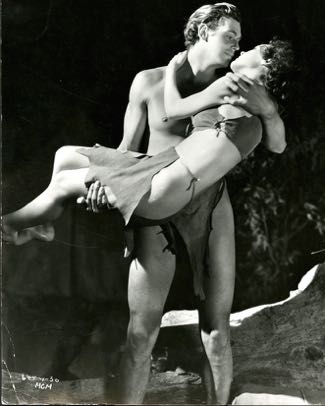 He had just given $1.5 million to the USC Film School and he spoke of his love of movies and music, which began in Chicago in 1934 when his mother took him to see “Tarzan and his Mate”, the second of the series with Johnny Weissmuller and Maureen O’Sullivan (left), and the last before films were censored under the Hays Code.
He had just given $1.5 million to the USC Film School and he spoke of his love of movies and music, which began in Chicago in 1934 when his mother took him to see “Tarzan and his Mate”, the second of the series with Johnny Weissmuller and Maureen O’Sullivan (left), and the last before films were censored under the Hays Code.
Hefner said, “I was very aware that they dressed differently in the next one, and ‘Flash Gordon’ had a tremendous impact on me. It was probably the most erotic serial of the 1930s in a very simple fashion. I had a big crush on Jean Rogers (below) – she had that kind of pre-Code platinum blone look.”
He said he loved horror movies and mysteries but his true love was movie music: “The single most romantic scenes in movies for me were musical scenes with their ability to express emotion. Being raised in a very repressed, typically mid-western American home, there was something in the lyrics that you could express in a poetic way – the yearning, the hunger for lover that you saw in those musicals. Alice Faye made a big impact on me, another platinum blonde.”
Years later, Hefner had a spell as a movie producer on films such as Roman Polanski’s “Macbeth” (1971), with Jon Finch and Francesca Annis (below); “The Naked Ape” (1973), with Johnny Crawford and Victoria Principal; Arthur Hiller’s “The Crazy World of Julius Vrooder” (1974) with Timothy Bottoms and Barbara Hershey; and Peter Bogdanovich’s film of the Paul Theroux novel “Saint Jack” (1979), with Ben Gazzara.
Hefner said Playboy’s corporate people in Chicago had turned down “Macbeth” because they did not think it would make money, and it did not do well commercially: “Shakespeare’s not what you do with your first commercial benture but I reconsidered it. Roman was a friend and I felt he could bring something special to it.”
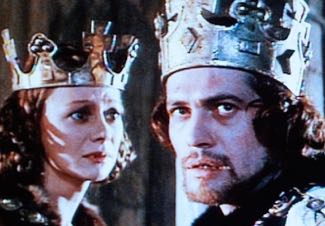 Polanski was still reeling from the murder of his wife, Sharon Tate, a few years earlier, and Hefner said, “In the making of that film there was almost a cathartic kind of something that occurred. I do think that it continues to be the best ‘Macbeth’ on film.”
Polanski was still reeling from the murder of his wife, Sharon Tate, a few years earlier, and Hefner said, “In the making of that film there was almost a cathartic kind of something that occurred. I do think that it continues to be the best ‘Macbeth’ on film.”
Hefner also was instrumental, via Playboy’s London executive Victor Lownes, in the first Monty Python film, “And Now For Something Completely Different” and he said he was involved in a secondary way with the last Peter Sellers film, “The Fiendish Plot of Dr. Fu Manchu”, with Helen Mirren (below): “It was a return to his ‘Goon Show’ days, what the film finally wound up being, and you can find it quite a delightful film in that context, because that’s all it is, he took over the film and it was almost like an epilogue to his life. It was like going back full circle to his origins.”
Hefner has put money into film preservation at USC and UCLA, sponsored courses at Columbia, created a Playboy Sundance Award and this June will see the 37th annual Playboy Jazz Festival at the Hollywood Bowl. He also almost singlehandedly saved the Hollywood sign, which was in a state of disrepair until he launched a fundraising campaign that offered each letter for sale. Oddly, he ended up with the Y: “I’m not quite sure how that happened, perhaps it’s because it’s in the middle.”
For all the frivolousness of the Playboy brand, Hefner and the magazine played a major role in the fight against prejudice and repression in the United States. He noted that he founded the publication in 1953 in the middle of the House Un-American Activities Committee’s investigation of Hollywood and the “red scare”.
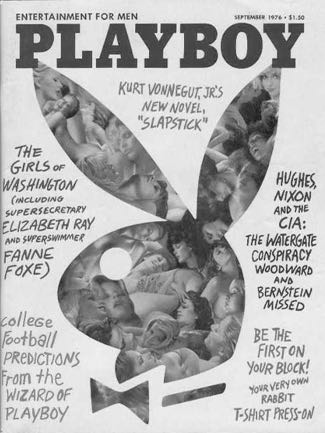 He said, “It was a very repressive time and you still find everybody fighting the same battles all over again. It’s the way of things. America is a very schizophrenic country when it comes to sex. We essentially remain in part a Puritan culture and it is the conflict that exists between the Puritans and the Founding Fathers, who saw the great danger in that kind of repression and put it in the Constitution to separate Church and State. It’s ongoing. It’s who we are and one has to find some balance.”
He said, “It was a very repressive time and you still find everybody fighting the same battles all over again. It’s the way of things. America is a very schizophrenic country when it comes to sex. We essentially remain in part a Puritan culture and it is the conflict that exists between the Puritans and the Founding Fathers, who saw the great danger in that kind of repression and put it in the Constitution to separate Church and State. It’s ongoing. It’s who we are and one has to find some balance.”
Hefner said he is an 11th or 12th descendant of William Bradford, the Governor of Massachussetts – “a real Puritan” – who arrived at Plymouth Rock but he suggests that the Puritan concern to perpetuate censorship is simply a need to control somebody else’s life. He said, “That’s what Puritanism is all about; that’s how we got Prohibition. It’s the notion that somehow or other we all need to be perfected in some wonderful moralistic way, and I know the way it should be done better than you and I’m gonna tell you how to run your life.”
Parents should be allowed to control the availability of material at home so that adults can make their own choices for their families: “That is perfectly legitimate and vastly superior to the notion of allowing someone else to do it. I think that one of the things that is really remarkable is that we’re more afraid of sex than we are of violence. That’s always struck me as very bizarre. We’re more afraid of the life-force than the death-force. It doesn’t make any sense at all. We speak of sex and violence as if they are evil twins. Aren’t they polar opposites? One is love and affection and procreation. The other is death, hatred and hurting.”
It comes from the mythology of religious heritage, Hefner said: “We have some very screwed up views of what is right and wrong when it comes to sex. What we call moral, in every other context, is what is good for people but not in sex. Sex has its own set of thou-shalt-nots that have nothing to do with what is really good for people. A lot of it is rooted in superstition and hatred. You see the attitudes toward gays or somebody who wants to live a little differently from you and me. These are not moral views. This is bigotry.”

